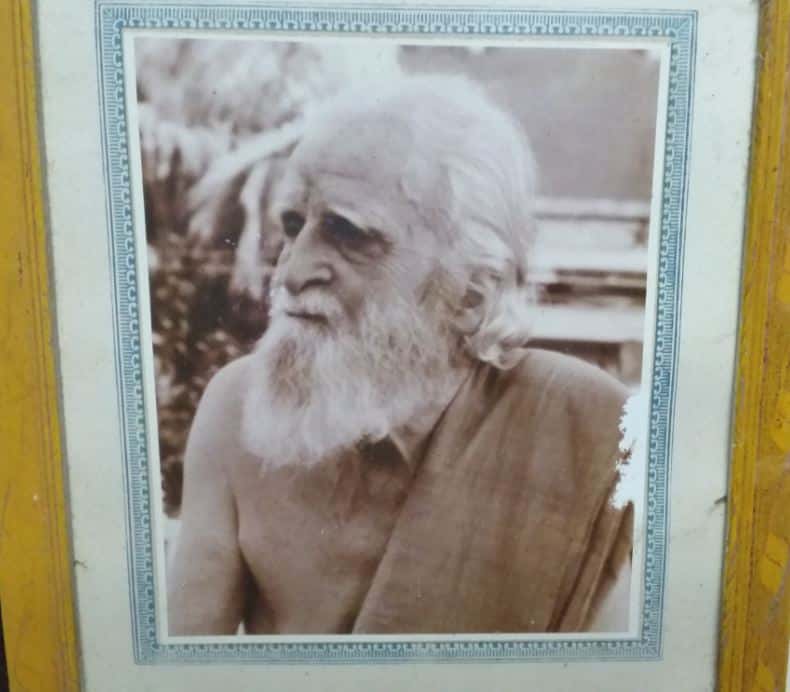
Balliol College Chapel, University of Oxford
15th May 2022
Readings: Job 19: 21-27a; John 16: 5-15
For a pdf version click here.
For the audio click here or on the link below (though there is a bit of an echo)
There are a few interesting things going on in the two readings we’ve had today. They are quite different – though there is a theme or cluster that emerges: misconceptions, faith, truth, and lies. Or, to put it simply – how we orient towards, and discern, truth.
So in our first reading we find Job still wrestling with the worst set of friends one could imagine. If you don’t know the story – briefly, it starts with a conversation between God and Satan. God is like, “Hey, check out Job – isn’t he great?” And Satan is like, “No, he only likes you because you give him stuff.” So God says, “OK fine, go test him – but don’t actually kill him.” So Satan strips Job of everything dear to him, and his three friends are like the worst Instagram influencers, with their spiritual platitudes: “Somehow you’ve attracted this” they say. Job is like “No, I haven’t.” In our reading today we find Job again responding in torment, but two things are happening:
One, Job is labouring under a misconception of what is happening. He says:
21Have pity on me, have pity on me, O you my friends, for the hand of God has touched me! 22Why do you, like God, pursue me, never satisfied with my flesh?
But it’s not the hand of God that has touched him. It’s not God pursuing him. Many people grow up with a very strong view of the sovereignty of God – whatever happens, God is behind it. Modern day New Age versions of that are things like “Whatever happens to you, you’ve attracted it.” There’s a whole literature in social psychology on this idea where it’s called ‘Belief in a Just World’. The key idea in the Belief in a Just World is that there is no such thing as undeserved, random suffering. There must be a reason for your suffering. That accident or illness you had? What had you done to bring that on yourself? How have you attracted misfortune? A past life perhaps? A secret sin maybe? You’re poor? What’s blocking abundance for you?
Now don’t get me wrong, personal responsibility is absolutely important – but when it becomes the only lens through which we see spiritual or social realities, it gives us a distorted and fractured picture. It’s one thing to suffer from a terrible event. It’s quite another to add a whole extra layer of suffering due to the meaning we give to that event. It’s no coincidence that the alt-health pseudoscience industry thrives in the insecure gig economy of multilevel marketing schemes, supplements, and wellness coaching. It’s a seamless move “You need to take personal responsibility for yourself … And the best way to do that is to buy my course / program / supplements.” Suffering viewed though an individualistic, victim-blaming lens only has individualistic consumerist solutions. There’s never any mention in wellness world of social conditions – the monstrous inequality built on inherited privilege, the structural racism and sexism, the low wages, the unaffordable housing, the underfunding the NHS, the woeful funding for mental health, the lack of shelters for vulnerable women, and on and on.
The Hebrew and Christian scriptures resist the simplistic messaging that everything bad that happens is the fault of the individual somehow. In the Gospel of Luke 13:1-5, Jesus is asked about some Galileans who were killed by the Romans. Jesus replied,
“Do you think that because these Galileans suffered in this way they were worse sinners than all other Galileans? No, I tell you; but unless you repent, you will all perish as they did. Or those eighteen who were killed when the tower of Siloam fell on them—do you think that they were worse offenders than all the others living in Jerusalem? No, I tell you; but unless you repent, you will all perish just as they did.”
So he’s saying “No – bad things aren’t doled out to people based on their moral merits. But – a turning towards God is also needed.” He’s not threatening them – he’s just saying, heal your relationship with God, so that when your time comes, maybe by some random accident, you’re ready to face death. Don’t die unprepared like these guys did.
“Die before you die” is how some in the Sufi Muslim tradition have put it. Christians talk about rebirth, and the image of baptism reflects this process of being reborn – of dying to one kind of life, and being reborn into another.
In this story of Job, it’s not God behind Job’s suffering at all. The story is framed as a test with the devil as the tester, but the main point of the story is ultimately about steadfastness in faith. It doesn’t mean we should also understand bad things happening as a test. But they are an opportunity to choose how to respond.
The holocaust survivor Victor Frankl wrote in his book Man’s Search for Meaning, that the one thing no-one can take from us is our capacity to choose how to respond to whatever is thrown at us.
And that is the second key movement in the reading. So Job responds:
25For I know that my Redeemer lives, and that at the last he will stand upon the earth; 26and after my skin has been thus destroyed, then in my flesh I shall see God,
Other times, he’s despairing. And something like around a third of the Psalms are what we call ‘lament Psalms’ – basically the people complaining to God about how hard things are – sometimes even blaming God. The Hebrew scriptures show people’s conceptions of God in all their messy humanity.
In this short passage from Job we see both a misconception about what is happening to him, and yet, a response of hope and faith. “For I know that my Redeemer lives, and … in my flesh I shall see God.”
I think it’s hard enough at times to respond with hope and faith when you don’t believe God is directly causing your suffering. So for Job to respond in this way in the story when he worries God might have it in for him is all the more impressive.
Turning to the New Testament passage we heard from, Jesus is talking about how he has to go – again. You can imagine the disciples being like, “Wait, what? You just got back – from being dead. Now you’re going again?”
But Jesus, says Yes, he has to go. For a very particular reason – so that ‘the Advocate’, identified in the previous chapter as the Holy Spirit, can come in his place.
The Holy Spirit is the Spirit of God, the third person of the Christian Trinity – traditionally often viewed as feminine.
The Holy Spirit represents the breath of God, the life force, echoing the ruaḥ ‘elohim in Hebrew, the breath of God hovering over the waters of chaos in Genesis 1. The word for spirit or breath, ruaḥ in Hebrew is feminine, as it is in Aramaic, the language Jesus most likely spoke. In Syriac, the word for spirit is also feminine – rucha and so the churches of the East often used maternal imagery for the Holy Spirit.
The Spirit also finds an echo in the Sanskrit in notions of prāṇa – the vital breath, breath of life, vitality; and in especially in śakti – the energy and power of the divine, again conceived as feminine.
One of my favourite Hindu depictions of God is as Śiva Natarāja, the cosmic dancer – the Lord of the Dance – you may have seen a statue of him – with Śiva on one foot, the other foot extended, arms outstretched, dancing in a circle of flames. There is a big statue of him outside CERN, the huge particle accelerator in Switzerland – representing God as the cosmic dancer – the life force who spun everything into existence. The power, energy, and life of the cosmic dance is the feminine śakti.
So what will this Spirit do? In John, Jesus said, “When the Spirit of truth comes, he will guide you into all the truth; for he will not speak on his own, but will speak whatever he hears, and he will declare to you the things that are to come. 14 He will glorify me, because he will take what is mine and declare it to you.”
There’s a lot in here. Firstly, “the Spirit of truth” – what does that mean?
A few chapters earlier, in John 8:44, Jesus describes the devil as ‘a liar and the father of lies’. So there is this contrast set up in Jesus’ teachings, between the Spirit of truth, and the father of lies. In his second letter to the Corinthians, Paul warned his readers to be discerning, because this liar is so good that, “Even Satan disguises himself as an angel of light.” (2 Cor 11:14)
It is my belief that our societies are suffering a crisis in regards to the notion of ‘truth’.
We have massive problem with communities riven by pseudoscience and conspiracy theories, and politicians and business leaders who often seem incapable of telling the truth. There is still a problem with climate change denial – in my country, Australia, it’s so bad the government wants to build new coal mines! And we saw people react in very different ways during the pandemic, with many going down the Covid-denial, anti-vaccination rabbit hole. ‘Conspirituality’– which is the overlap between conspiracy theories and spirituality – is a huge and growing problem.
The conspirituality phenomena reinforces the importance of truth, since our ethics are related not only to what values are nurtured by our spirituality, such as compassion, but also how we understand how far those values extend. For example, a spiritual tradition may encourage its adherents to be compassionate. That’s great! But it may also teach that the world is not really real, and that the purpose of spiritual practice is to dissociate from the world and eventually escape from the illusion. In practice then, the scope of compassion may be quite individualistic and passive, being limited to whatever sentient beings happen to cross practitioners’ paths. Alternatively, a tradition which not only teaches compassion, but also supports a robust philosophy of physical and social science, will arguably better equip its adherents to engage with complex systemic issues such as climate change, viral pandemics, structural racism, and pervasive sexism. In each case, there is a truth about the world to be discovered. It is not just a matter of differing opinions, perspectives and stories.
A common feature of much conspirituality thinking is the combination of a very tenuous grasp of science, and a degree of confidence untroubled by this lack of expertise. This phenomenon has come to be known as the Dunning-Kruger effect, after a classic paper aptly named Unskilled and Unaware of It: How Difficulties in Recognizing One’s Own Incompetence Lead to Inflated Self-Assessments. More recent research also finds a link between the tendency to believe conspiracy theories and lower critical thinking abilities. A key anchor point of this analysis is that there is actually such a thing as expertise.
During the Brexit debate – Michael Gove famously refused to name any economists who supported Brexit, saying that “people in this country have had enough of experts”. And we can all see how well that is going.
Many say that we are now in an era of ‘post-truth’ politics. In the United States, the Washington Post estimated that President Trump’s speeches and tweets had contained over 30,000 lies over the four years of his presidency. And who can forget Trump’s Counsellor, Kellyanne Conway, who introduced the world to the phrase “alternative facts” in January 2017, when shamelessly defending White House Press Secretary Sean Spicer’s manifestly false statements about the size of Trump’s inauguration crowd. It all culminated in the ‘big lie’, that the 2020 election had been stolen, and with the storming of the US Capitol on January 6th last year. But even here in this country, and in my own, politicians seem to be coated in Teflon – there no longer seem to be any consequences for demonstrable lies. Politicians have always lied, sure – but there used to be consequences.
Once we lose our grip on the notion that some things are true and other aren’t – it becomes a cancer that eats away at our civilization.
In John’s story of Jesus’ trial (John 18:37-38), Jesus says “For this I was born, and for this I came into the world, to testify to the truth. Everyone who belongs to the truth listens to my voice.” And then the Roman governor of Judea, Pontius Pilate, asked him, “What is truth?”
Was Pilate a philosopher? Probably not. But this questioning of the nature of truth is the hinge point of the trial. This dissembling about truth is what makes possible the monstrous injustice of Jesus’ crucifixion.
There is a subfield of philosophy called ‘virtue epistemology’ which explores the connection between ethics and how we acquire knowledge. The idea is that the cultivation of intellectual virtues are crucial for developing the discernment needed to acquire knowledge and wisdom.* These virtues typically include traits such as: open-mindedness, curiosity, diligence, discipline, self-awareness, honesty, courage, perseverance, humility, openness to constructive criticism, etc. The kinds of things we are meant to be learning here.
‘Intellectual vices’ have received somewhat less attention, but include traits such as being impervious to evidence, carelessness, dogmatism, prejudice, wishful thinking, over-confidence, gullibility, negligence, conformity, and obtuseness. One vice in particular warrants mention – that of intellectual insouciance, which Quassim Cassam [2019, p. 79] defines as “an indifference or lack of concern with respect to whether their claims are grounded in reality or the evidence.” Philosopher Harry Frankfurt (2005) memorably described this trait as being a defining characteristic of – and I quote what has now become a technical philosophical term – the ‘bullshitter’. A liar, at least, has a regard for the truth, knowing they are speaking a falsehood. The bullshitter, by contrast, speaks only for rhetorical, persuasive effect, and is wholly unconcerned with the truth or falsity of their claims. They just don’t care, as long as their words get them what they want. This rhetoric that is unmoored from even a care for the truth is the essence of the post-truth politics infecting our current age.
Why does truth matter? Well for a start, coherent, evidence-based ethical deliberation and public policy is difficult at the best of times, but when even the notion of truth itself begins to dissolve, they become virtually impossible. This process occurs not just through overt philosophical attacks on the notion of truth, and manipulative corporate PR campaigns, but perhaps more insidiously, though the flooding of information channels with so much general disinformation that regular citizens become disoriented, lose hope of ever being able to discern what is true, and give up, making them more vulnerable to specifically-targeted disinformation. Disinformation and propaganda were used extensively by the Nazis in the creation of the so-called ‘Hitler myth’, portraying Hitler as Germany’s saviour [Kershaw, 1987]. Writing after the war on The Origins of Totalitarianism, Hannah Arendt [1951, p. 446] highlighted the critical role of propaganda: “Only the mob and the elite can be attracted by the momentum of totalitarianism itself; the masses have to be won by propaganda”.
And as we have seen, lies and propaganda have been a fundamental part of Russia’s strategy, such as it is, in Ukraine. Access to foreign media and social media was severely curtailed, with Facebook and Twitter banned. Even language was tightly controlled, with a 15 year jail sentence possible for anyone spreading ‘fake news’ which ‘discredited’ the Russian armed forces. Even describing the invasion as a ‘war’ rather than the Kremlin-approved ‘special military operation’ risks arrest [Sherwood & Milmow, 2022].
So part of the role of God’s Holy Spirit is to lead us into truth – it is no surprise then that intellectual virtues are central to that enterprise.
What’s next in the reading?
Jesus said of the Spirit: “He will glorify me” – how? Through the hearers and bearers of the divine spirit – through those who are marinated, soaked, in the divine Spirit. So who are they? Are they those who thump their chest and loudly tell other people what to do, in the name of God? Are they those who misuse the Bible as a weapon against the poor, against women, against gay, and transgender people – against people of other faiths?
No. So many things are done in God’s name which bring God only rejection and derision, rather than glory. You scratch the surface of most of them and you find contracted, fearful human beings, who are seeking to control others. And so many petty, ego-driven, human games.
In the Gospel of Matthew chapter 7, is a passage that I think should be engraved in every church:
Jesus said, 21 ”Not everyone who says to me, ‘Lord, Lord,’ will enter the kingdom of heaven, but only the one who does the will of my Father in heaven. 22 On that day many will say to me, ‘Lord, Lord, did we not prophesy in your name, and cast out demons in your name, and do many deeds of power in your name?’ 23 Then I will declare to them, ‘I never knew you; go away from me, you evildoers.’
So if words and actions, and ‘deeds of power’ done in God’s name, do not bring glory to God, and instead cause people to turn away from God, and to blame God – it’s a fair bet that God’s Spirit is not driving that.
Perhaps a better rule of thumb could be described as Marie Kondo theology: Does this spark joy? I am sure we all have our favourite places in nature – the places where we feel grounded and refreshed – where we can sense the life-force pulsing through the universe. The Celts called them thin places. But what are the things that reflect God’s glory in the human realm? For me, the things that strike me dumb with awe and wonder are humans at their most creative, most loving, most expansive, most courageous, most skilled, most playful, and most vulnerable. A striking work of art. A sublime piece of music. Soaring beautiful architecture. A generous act of forgiveness. An honest, vulnerable, authentic conversation that invites us to respond with love and connection, and with the flash of recognition – “Ah you feel like I do. You see me. I’m not alone.” A courageous stance in the face of injustice, hate, and oppression. Caring deeply, and with boundless compassion for the wounded, the sick, and the vulnerable.
These are the things that bring glory to God, that reveal the stirring of the Spirit in our midst – like ripples on a still lake, which make us wonder: Is there more going on than what we see?
* On virtue epistemology and intellectual virtues, see: Sosa, 2007, 2009, 2017, 2021; Baehr, 2011; King, 2021; Zagzebski, 1996.
References
Arendt, H., (1951) The Origins of Totalitarianism, Modern Classics; Penguin Books, London, 2017 Edition; xlviii + 703 pp.
Baehr, J., (2011) The Inquiring Mind: On Intellectual Virtues and Virtue Epistemology, Oxford University Press, Oxford, xiii + 235 pp.
Bradner, E., (2017) “Conway: Trump White House offered ‘alternative facts’ on crowd size”, CNN Politics, 23 January.
Cassam, Q., (2019) Vices of the Mind: From the Intellectual to the Political, Oxford University Press, Oxford, xi + 202 pp.
Frankfurt, H.G., (2005) On Bullshit, Princeton University Press, Princeton NJ & Oxford, 67 pp.
Frankl, V.E., (1984) Man’s Search for Meaning, Revised and Updated; Washington Square Press, New York, 221 pp.
Kershaw, I., (1987) The ‘Hitler Myth’: Image and Reality in the Third Reich Oxford University Press, Oxford; Reissued 2001, ix + 299 pp.
Kessler, G., Rizzo, S. and Kelly, M., (2021) “Trump’s false or misleading claims total 30,573 over 4 years”, Washington Post, 24 January.
King, N.L., (2021) The Excellent Mind: Intellectual Virtues for Everyday Life, Oxford University Press, Oxford & New York, xii + 280 pp.
Kruger, J. and Dunning, D., (1999) “Unskilled and Unaware of It: How Difficulties in Recognizing One’s Own Incompetence Lead to Inflated Self-Assessments”, Journal of Personality and Social Psychology, Vol. 77, No. 6, pp. 1121–1134.
Lantian, A., Bagneux, V., Delouvée, S. and Gauvrit, N., (2021) “Maybe a free thinker but not a critical one: High conspiracy belief is associated with low critical thinking ability”, Applied Cognitive Psychology, Vol. 35, No. 3, May – June, pp. 674-684.
Mance, H., (2016) “Britain has had enough of experts, says Gove”, Financial Times, London.
Sherwood, H. and Milmo, D., (2022) “BBC, CNN and other global news outlets suspend reporting in Russia”, The Guardian, 5 March.
Sosa, E., (2007) A Virtue Epistemology: Apt Belief and Reflective Knowledge, Volume I, Clarendon Press, Oxford, xiii + 149 pp.
Sosa, E., (2009) Reflective Knowledge: Apt Belief and Reflective Knowledge, Volume II, Clarendon Press, Oxford, xii + 254 pp.
Sosa, E., (2017) Epistemology, Princeton Foundations of Contemporary Philosophy; Princeton University Press, Princeton NJ & Oxford, xiii + 235 pp.
Sosa, E., (2021) Epistemic Explanations: A Theory of Telic Normativity, and What it Explains, Oxford University Press, Oxford, xii + 234 pp.
Zagzebski, L.T., (1996) Virtues of the Mind: An Inquiry into the Nature of Virtue and the Ethical Foundations of Knowledge, Cambridge University Press, Cambridge, xvi + 365 pp.









